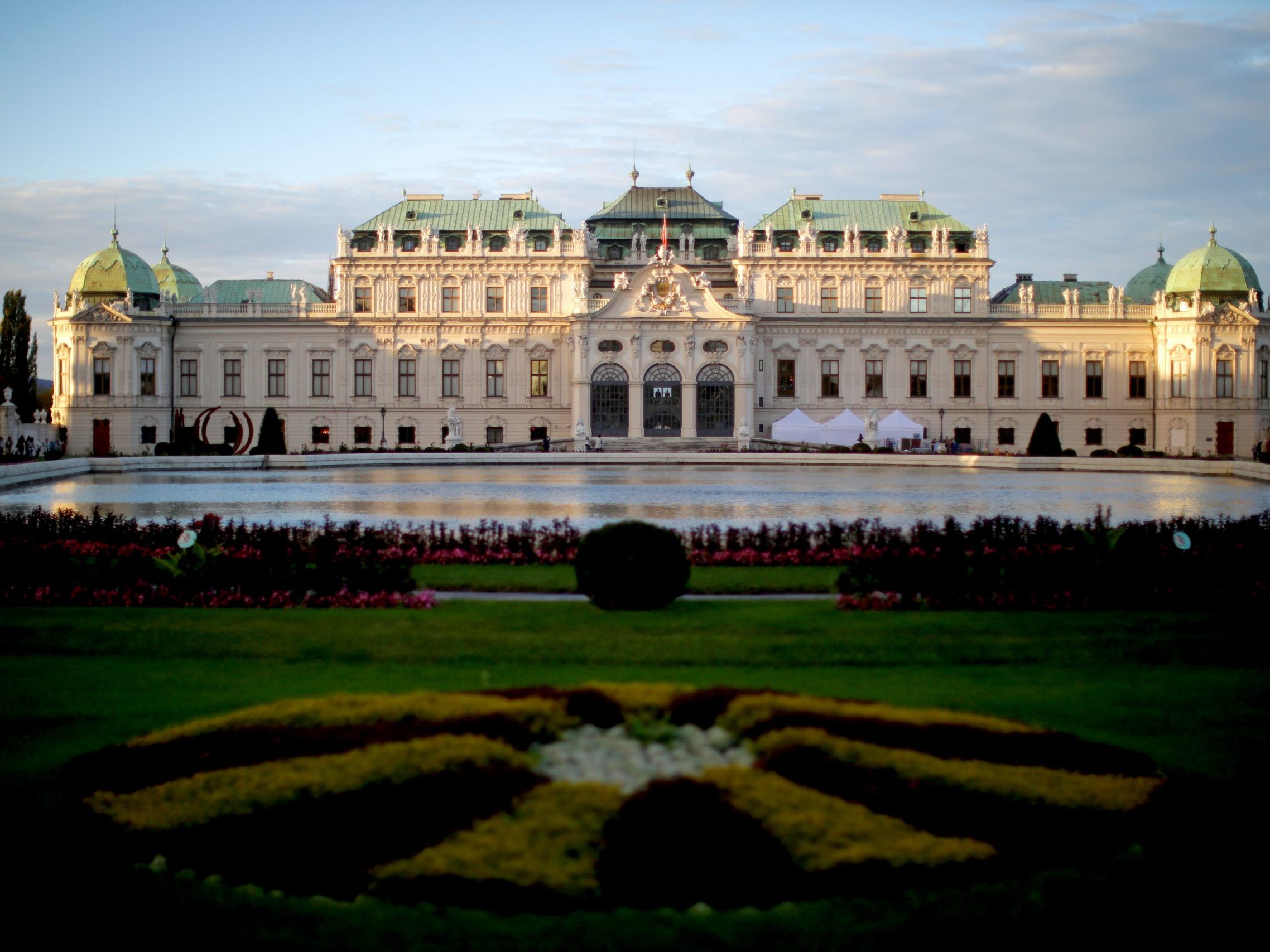Ceremonial Acts for State Treaty on Thursday in Vienna

With commitments to Austria's perpetual neutrality, the celebrations for the conclusion of the State Treaty 70 years ago began on Thursday. At a ceremony in Parliament, all three members of the National Council Presidium, Walter Rosenkranz (FPÖ), Peter Haubner (ÖVP), and Doris Bures (SPÖ), emphasized that the State Treaty is not just a historical document. Rather, it must be brought to life in light of international conflicts.
The signing of the State Treaty 70 years ago was celebrated with cross-party commitments to neutrality. Not only did Chancellor Christian Stocker (ÖVP) describe neutrality at a ceremony in front of the Belvedere as an indispensable part of Austrian identity. Previously, all three representatives of the National Council Presidium in Parliament had seen the State Treaty as a mandate that must be brought to life.
The sentence spoken 70 years ago by then Foreign Minister Leopold Figl at the Belvedere Palace in Vienna, "Austria is free," is "more than a historical sentence," emphasized Stocker at the federal government's ceremony at the historic site of the State Treaty signing. "They are a legacy." On this day - May 15, 1955 - Austria regained its long-awaited freedom, independence, and state sovereignty. "On this day, Austria became a sovereign republic again," said the Chancellor.
Reaching out to each other and overcoming divides have made Austria what it is today, Stocker continued: "A vibrant, stable, and resilient republic. And one of the most beautiful, prosperous, and safest countries on this earth." An "indispensable part of our identity" is neutrality, which has never been "neutrality of attitude." Freedom must be won anew again and again, the Chancellor reminded. Especially in times when authoritarian systems and dictatorships are gaining strength.
Before Stocker, other members of the government also honored the historical anniversary. Vice Chancellor Andreas Babler (SPÖ) also saw the State Treaty not just as a historical document, but as a mandate to protect and expand democracy. Foreign Minister Beate Meinl-Reisinger (NEOS) also emphasized the mandate to remain "vigilant." The defense of values is not only the responsibility of the armed forces, emphasized Defense Minister Klaudia Tanner (ÖVP) - "it is our collective mandate."
President Alexander Van der Bellen held back as a speaker on this day, although he was present at the celebration in Parliament. "Only joint action and mutual respect keep democracy and freedom alive," he wrote on social networks. The chairman of the Catholic Bishops' Conference, Salzburg's Archbishop Franz Lackner, also spoke via "Kathpress." He called for prayers today "for a peaceful and free Austria in a world that may recognize the futility of war and oppression."
Commitments were also heard in the morning in Parliament. National Council President Rosenkranz described the State Treaty as a "secular relic of recent Austrian history." Even before its signing, all parties had strived for neutrality. "I bow today with great respect to the achievements and diplomatic skill of the great statesmen of those years," said Rosenkranz. Their legacy is a call to bring the State Treaty to life even today - for example, through the implementation of Article 7, which also provides for bilingual place-name signs for ethnic groups.
Rosenkranz: "I Bow"
National Council President Rosenkranz described the State Treaty as a "secular relic of recent Austrian history." Even before its signing, all parties had aimed for neutrality. "Today, I bow with great respect to the achievements and diplomatic skill of the great statesmen of those years," said Rosenkranz. Their legacy is a call to continue to bring the State Treaty to life today - for example, through the implementation of Article 7, which also provides for bilingual place-name signs for ethnic groups.
The Second National Council President, Peter Haubner (ÖVP), also "bowed his head in respectful remembrance" of the actors 70 years ago. "At the same time, we raise it with pride as free citizens of a sovereign, democratic Austria," he emphasized in his speech. The history of the State Treaty illustrates "how important the parliamentary path was for our freedom," summarized the Second National Council President, and he also emphasized: "This State Treaty is not just a legal document, it is a living mandate." Neutrality must "prove itself anew every day," freedom, democracy, and neutrality are not a given.
The State Treaty "should also be a mandate and obligation in the future," said the Third National Council President, Doris Bures (SPÖ). Austria has thus become a hub for visible peace policy. "It is time to revive exactly this tradition," Bures agreed with the words of her predecessors. Neutrality has brought peace and security to the country for 70 years, even if it is "sometimes underestimated." "Austrian neutrality has never been in contradiction to international solidarity," emphasized Bures.
Choir Boys at Ceremony
At the ceremony in Parliament, former Federal President Heinz Fischer (SPÖ) and former National Council President Andreas Khol (ÖVP) also shared their experiences from the post-war period. Afterwards, the party leaders discussed the significance of the State Treaty. The absence of FPÖ leader Herbert Kickl was defended by Norbert Nemeth, stating that they are a "division of labor club." That this was even a topic at a ceremony was later criticized by the Freedom Party Secretary General Christian Hafenecker in a statement.
(APA/Red)
This article has been automatically translated, read the original article here.





